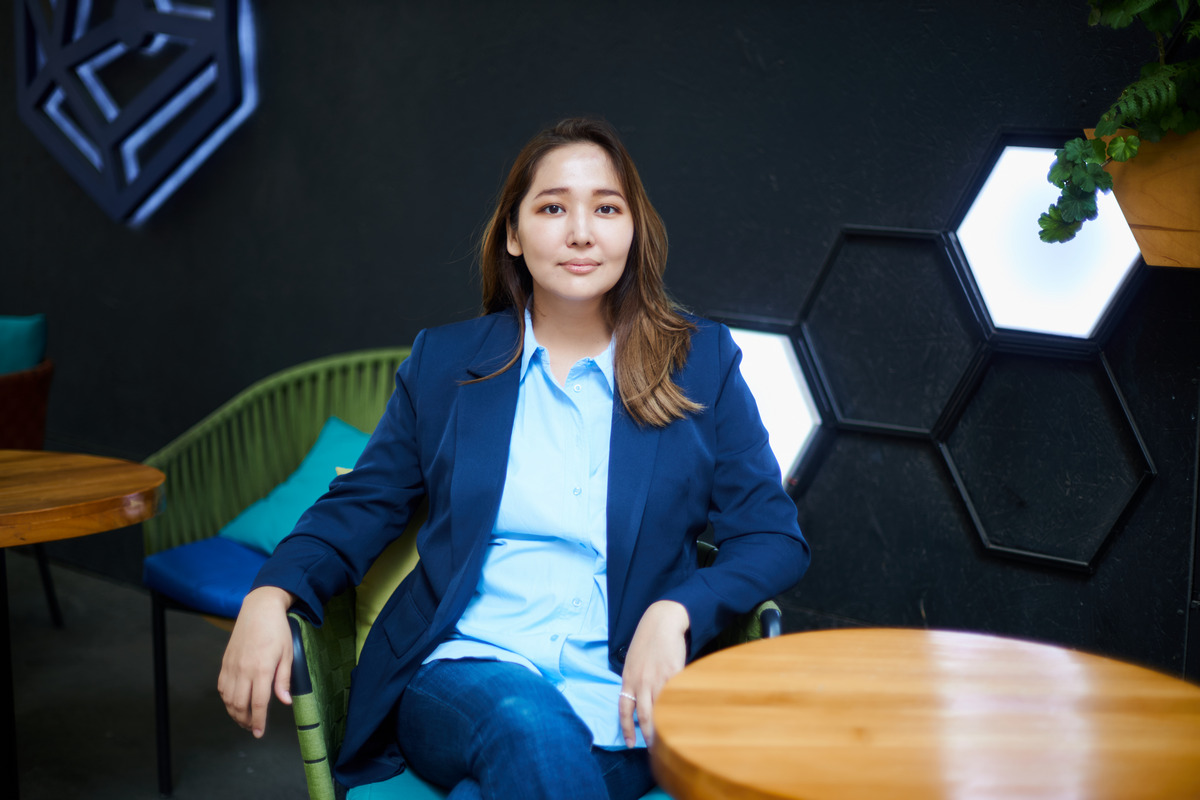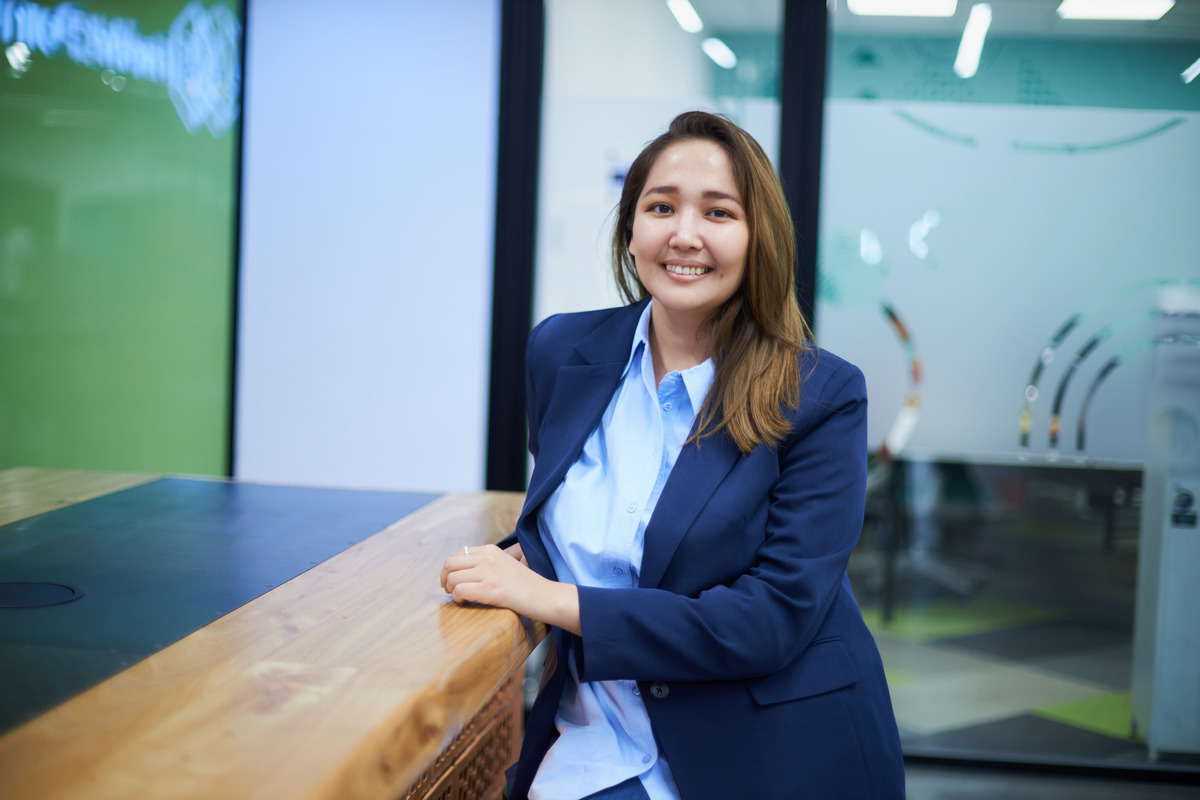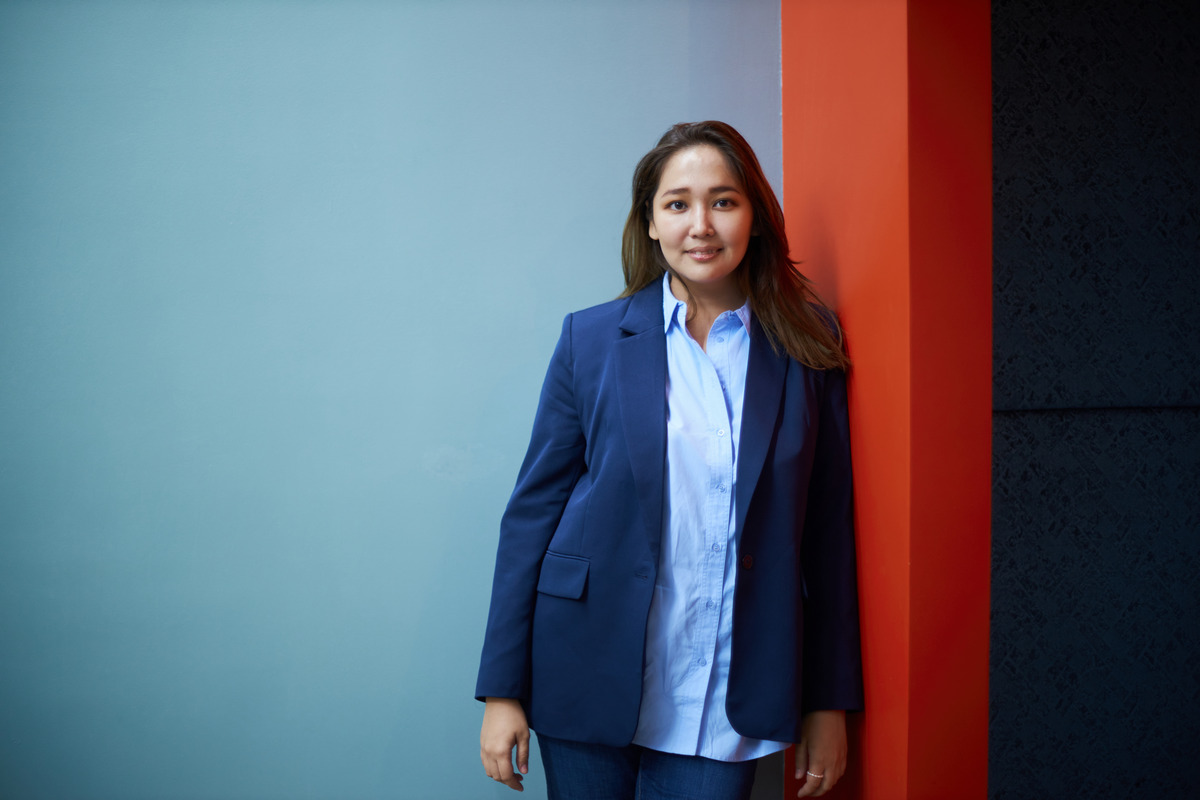A kazakhstan girl launches digital locks service for hotels with international hotel chains in her sights

Porte is a SaaS solution that replaces magnetic keys with digital keys accessible via a mobile phone. This service operates through mobile and web applications, offering supplementary amenities for hotel guests. The team successfully initiated the project in under six months and is currently finalizing contracts in Kazakhstan, while preparing to expand into the markets of the UAE and Saudi Arabia.
What contributed to the rapid launch of the startup? Which technologies were discarded to expedite entry into new markets? Why did founder Aidana Aituarova require acceleration in Saudi Arabia? Read about it in the Digital Business interview, part of the collaborative project with Astana Hub, “100 Startups of Kazakhstan”.
“We were able to prepare the MVP in just two weeks”
— Aidana, prior to launching the startup, you had a successful career as an employed professional, from working at Big 4 firms to becoming the CEO of the Kazakhstan startup Parqour, which operates in 20 countries. What prompted your decision to create your own product?
— I realized that I could establish a business in the realm of digital property services (Prop Tech) that could be expanded to other countries. After my tenure at Big 4, I worked at the largest real estate company in Kazakhstan, Mercury Properties, which established Smart Point. Over the past three years, I served as the CEO of Parqour, renowned for its smart parking solutions. However, our visions diverged with the founders of Parqour regarding the product's future development. As a CEO, I lacked the authority to make crucial decisions. It was truly disheartening when, after assembling a talented team and creating a great product, I couldn't steer it in the direction I believed to be right. The only logical choice was to embark on my own entrepreneurial journey and assume complete responsibility for the project's strategy.

Initially, my background was highly beneficial. I had studied at SDU, and our first client happened to be the owner of the Hotel Kazakhstan, who was also an alumnus of KTL. Subsequently, we had meetings with PricewaterhouseCoopers, one of the Big 4 firms where I had worked for five years. Interestingly, it turned out that most of my former colleagues were now top managers in major holdings that owned various properties. One of them eventually became an investor in my startup.
— Your startup is now known as Porte, but during the TechnoWomen forum in March, you presented the idea under a different name. What prompted the decision to rebrand?
— The motivation behind the rebranding was driven by internal changes. When we initially launched the project, I had a technical co-founder. However, in April, we made the decision to part ways. Following that, we conducted a thorough product review, leading to significant changes. We eliminated blockchain technology, introduced new features, and altered the method of connecting to locks.
— Who currently comprises your team?
— Assembling the team was not a challenging task. Our CTO, who boasts over 20 years of experience in IT, and our Legal Officer, were both former colleagues of mine. Additionally, the mobile development team agreed to collaborate on a post-payment basis. I chose team members I knew had experience in developing products within similar domains. Over a span of 4-5 months, we all dedicated our efforts to the project with great enthusiasm, firmly believing in the idea behind it.

The majority of our employees operate remotely, which is a common practice for startup teams, as the requirement for in-office work often poses a significant drawback. Our CTO spends half of the year working from abroad but remains readily available. Personally, I don't find the need for an office imperative because I spend the majority of my time in meetings with clients and investors. We have weekly online meetings with my team to monitor task progress, and I meet with the CTO and project manager at the same frequency.
With our application the number of orders in the hotel restaurants increases by 15%
“Our application leads to a 15% increase in the number of orders at hotel restaurants.”
— Tell me about your idea. How did hotels initially respond when you began searching for clients?
— They were enthusiastic about it. When I mentioned replacing their magnet cards, they promptly scheduled meetings for the very next day, even if they were unfamiliar with me. I found hotels by using 2GIS and simply sought out the contact details of the directors.
One of the major challenges for all hotels is the retrieval of magnetic cards. In the USA, they charge between 5 to 15 USD if you lose the magnetic card. This practice is not common in Kazakhstan, and often, guests simply forget to return the cards at the reception. Initially, it may not seem like a significant expense, but when you have 250 rooms, the monthly total can become substantial. Moreover, magnetic cards frequently demagnetize, causing inconvenience for the guests.

Certainly, not everyone is willing to download something onto their phone, and some guests will still prefer using the magnetic cards. However, we are observing a growing number of people who are interested in downloading the application or, at the very least, using the web version.
– Are we exclusively discussing the substitution of the analog version with the digital one?
– The digital key is not our sole advantage. In any hotel, there are clients who order food delivery, and I've done it myself. However, the delivery person typically won't bring your dinner to your hotel room, and the hotel might not be pleased with anyone other than guests inside. We provide access to food from the hotel restaurant, which can be easily ordered through the application in just two clicks. In doing so, we've observed a 15% increase in the number of orders.
Through what means? Many believe that hotel restaurants are expensive, but very often, that's not the case. With our application, people no longer have that fear. Another advantage is that when you order food from the hotel restaurant, it arrives beautifully plated with proper cutlery within just 15-20 minutes.

— Discussing the technical aspect, how do you go about integrating the service into hotels?
— We collaborate with the locks that are already in place. Some require the installation of small Wi-Fi routers, while others can be integrated without any additional equipment. The process of connecting to the hotel system to determine who has booked which room and for what duration typically takes more time.
Initially, the idea was to manufacture our own door equipment. However, after deliberating with our technical advisor and Parqour co-founder, Kairat Ahmetov, I decided to abandon that notion. It proved simpler and quicker to partner with existing lock manufacturers. Consequently, we do not have our own hardware; instead, we offer a SaaS product that can be swiftly implemented in new hotels.
I'm frequently asked: if it was so straightforward for you to integrate with the locks, why can't someone else do it? In our situation, the lock manufacturers are the same as the camera producers for Parqour. To become their integrators, you need to establish a working relationship with them over three or four years. They know they can trust me. In Kazakhstan, there were few integrators like us, and they primarily focused on other systems.
“It would be excellent to utilize a phone instead of a doorphone to access the entrance hall”
— Which customer base are you aiming for?
— Our primary target clientele consists mainly of mid-range hotels. For instance, brands like Marriott and Hilton have their proprietary in-house applications that offer digital key functionality, room service ordering, and other services. The presence of such products in the market indicates a demand for these services among hotels. However, mid-range hotels often lack the resources to maintain an in-house IT team. This is where we step in, providing an affordable product with the desired features.

— What is your revenue model?
— Our revenue is generated through monthly subscriptions for the service and fees from purchases, which include restaurant orders. In the future, we may incorporate additional services into the application for which we can levy additional fees.
— Why did you choose to focus on the hotel industry, even though the product has universal applications? Isn’t the niche too narrow?
— We explored various niches, engaging with real estate developers and speaking with representatives from RAMS and BAZIS-A, among others. For instance, the idea of using a phone instead of a doorphone to access the entrance hall garnered interest from developers, and we were even offered the opportunity to pilot it in four new buildings. However, we realized that this niche offered limited scalability. In the future, we would have to negotiate with individual property owner associations, which would be exceptionally challenging.
As an example, we are currently in negotiations with Best Western, which manages 4,500 hotels worldwide. When we integrate with one hotel within their chain, we establish a connection with their system and undergo approval procedures with the parent company. Subsequently, connecting to other hotels in the chain becomes significantly easier. Additionally, the feedback from the initial client will undoubtedly be advantageous.
— How challenging was it to secure investments for the project?
— It was a challenging process. The investments were more in me as an individual rather than solely in the project itself. Regrettably, I cannot disclose the identity or the exact amount of the investment, but it came from a Kazakhstani business angel.
In any case, the pursuit of funding proved to be beneficial. For instance, during the process, Bakht Niyazov dedicated two hours of his time, providing numerous valuable insights and facilitating connections to another project in the USA within the hotel business sector. He also assisted in arranging a meeting with a hotel owner for feedback on our product. In essence, even though we may not have secured the investments we initially sought, we still acquired valuable knowledge and opportunities.
“By April 2024, we aim to achieve operational profitability”
— I'm aware that you have plans to undergo acceleration in Saudi Arabia soon. What are your expectations, and why have you chosen to focus on this particular region?
– The MENA region is experiencing rapid growth, with the HoReCa market ranking at the top. For instance, a hotel in Saudi Arabia generates six times more revenue than in Kazakhstan, despite similar efforts. For instance, here, the hotel pays one dollar for a door, whereas there, it's seven dollars.
Participating in Antler's acceleration program entails the pursuit of new investments and offers quality networking opportunities. For instance, one of Antler's key partners in the MENA region has successfully sold three startups in that area, with one being acquired by Alibaba.

An accelerator presents a valuable opportunity to enter the Saudi Arabian market, even if it entails paying a certain percentage to potential intermediaries. In Kazakhstan, I'm well-connected with investors and clients, so I don't require introductions. However, the situation is distinct in Saudi Arabia.
— How challenging is it to balance a startup and family life, especially considering your frequent international trips?
— I'm fortunate to have a supportive husband. During my time at Parqour, I traveled to San Francisco for a month and a half to open an office, and long trips have never been an issue for us. We reached an agreement that it's my turn to focus on developing a startup. Prior to this, I took several months of maternity leave, and my husband managed his own business. He fully supports my ambitions and takes care of our baby in Kazakhstan while I'm away.
— Let's refocus on your business. Could you outline your immediate goals and the timeline you have in mind for achieving self-financing?
— There is a significant demand for our solution. In the coming months, our plan is to onboard ten more hotels, including a chain in Kyrgyzstan. We have also received a request from Shymkent. Currently, we are enhancing our product and testing hypotheses within the local market. However, I am hopeful that our next contract will be signed in Saudi Arabia during my visit there. It's true that products vary from one market to another, not only in terms of language but also in alignment with the preferences of the local audience. Nevertheless, we are prepared to adapt our service to each new country.

Currently, Kazakhstan doesn't have any successful startups operating in the MENA region, including Saudi Arabia and Dubai. This presents an intriguing challenge for me. Regarding self-financing, we initiated our operations in August 2023, and our target is to achieve operational profitability by April 2024. However, I believe this milestone may be reached even sooner.


